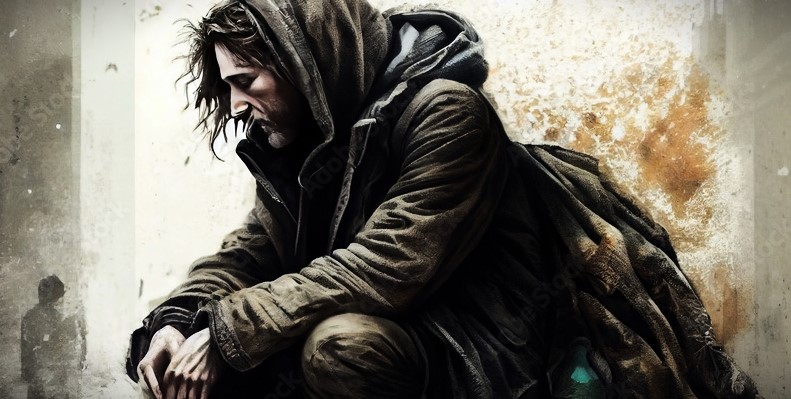[first posted December 2016]
After we retired to Florida some years ago, we discovered that Christmas there is as jolly a season as any we enjoyed up north, enveloped by snow. It was especially joyous when our grandchildren came to visit.

One evening during our last Christmas season in the sunny south, we all went out to dinner—my wife, our daughter and her husband, and three of our grandchildren. We’d spent the afternoon shopping at a large, regional mall, and were looking forward to enjoying the cheer of the season and the pleasure of each other’s company.
During dinner, we talked of our plans for their holiday with us. Unlike the north, where tobogganing, skating, snowball fights, and warm fires were the order of the day, in Florida the beach, the pool, and the golf course were all on the agenda. We were looking forward to an old-fashioned holiday with lots of singing, plenty of fresh air and exercise, good food, and family to enjoy being around the tree with.
By the time we finished dinner, sharing our happy plans, we were all feeling very fine—warm, full, comfortable. We left the restaurant, chatting amiably, and began the walk back to the parking lot where we had left the car.
As we waited to cross the intersection, guided by flashing green and red traffic lights that added to the festive Christmas air, we were accosted by a stranger. He meant us no harm, but his sudden approach startled us out of our contented state.
He was tall and quite thin, and his face jutted out from under a worn cap. His beard was unkempt, his eyes red and rheumy. He wore faded jeans, tattered and patched, and an old, plaid shirt with the collar turned up. The children huddled behind their parents, afraid of being so close to such an apparition.

When he spoke to me, I could hardly hear him in the hum of the passing traffic. He mumbled through that scraggly beard, through missing teeth, his words coming in disjointed phrases.
“Hey, can you….you got anything….any change? A bus ticket, maybe….got any…?”
He was clutching a sign on a scrap of corrugated cardboard that read:
Out of work Homeless Anything helps Thank you
“No, sorry,” I muttered, watching for the green light that would allow us to escape. And we walked away, slightly embarrassed, but relieved to leave him behind.
“Who was that guy, Daddy?” one of the kids asked.
“Did he wanna hurt us?” another chimed in.
Their parents reassured them that he had meant no harm. He was just a man asking for money.
“Is he sick, Mummy? Will he be alright?”
None of us could really answer.
When we reached the car, we clambered in silently, each of us lost in our own thoughts. The kids soon put the episode behind them, immersing themselves in their gaming devices. As I drove back through the intersection, heading home, the stranger was still on the corner, huddling around himself, approaching passers-by. He looked pathetic, and utterly alone. I hoped he didn’t see me staring at him.

Later that night, after everyone was in bed, I thought of him again. At first, I chastised myself for not giving him something to help him out. From somewhere, the scrap of a Bible verse teased a corner of my mind—Whatsoever ye do unto the least of these, ye do also to me—something close to that, I think.
But then I rationalized that a token from me would not likely have helped him anyway. He was obviously past the point where a solitary handout was going to make much of a difference in his life. He’d probably have wasted whatever we might have given him on booze or drugs, I told myself self-righteously. At one point, I got angry that he had put me in such an uncomfortable position.
Still, underneath it all, I felt a nagging guilt. ‘Tis the season to care for one’s fellow-creatures; yet we, so full of the Christmas spirit, had kept on walking. Because we were fearful, because we hadn’t known how to respond…or because we didn’t care.
Was it best to have ignored him and walked on, I wondered? Or would it have been better to have given him something, in the spirit of Christmas and with the hope that it would have helped him? I didn’t know.
As I think about it even now, almost a year later—sitting warm and safe at home at the onset of another Christmas season, surrounded by people who love me—I wonder where that stranger is and whether he’s okay.
And I wish I knew what I should have done.








